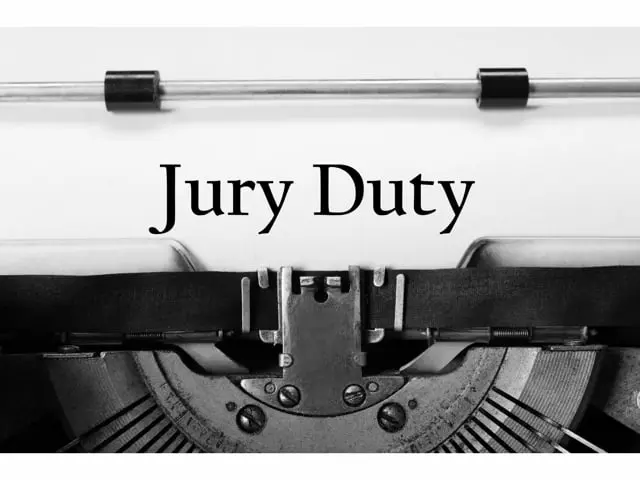When someone is arrested and faces criminal charges, the court may set bail as a condition for their release from custody. However, not everyone can afford to pay the full bail amount upfront. This is where fianzas come into play, offering a way for defendants to secure their freedom while awaiting trial. For many individuals seeking bail bonds, a cosigner is often required to guarantee the defendant’s compliance with court appearances and bail conditions. If you’re considering becoming a bail bond cosigner, it’s crucial to understand the responsibilities, risks, and requirements involved in this important decision.
A bail bond cosigner, also known as an indemnitor, plays a vital role in the bail process by assuming financial responsibility for the defendant’s bail. This arrangement allows the defendant to be released from jail while their case is pending, but it also places significant obligations on the cosigner. Before agreeing to cosign a bail bond, it’s essential to carefully consider the potential consequences and ensure you meet the necessary qualifications.
The primary function of a bail bond cosigner is to provide assurance to the bail bond company that the defendant will appear for all required court dates and comply with the conditions of their release. By cosigning, you’re essentially vouching for the defendant’s reliability and agreeing to be financially responsible if they fail to meet their obligations. This responsibility extends beyond simply paying the bail bond premium; cosigners may be liable for the full bail amount if the defendant skips bail or violates the terms of their release.
To qualify as a bail bond cosigner, you must meet certain criteria established by bail bond companies and legal requirements. These requirements are designed to ensure that cosigners have the financial means and stability to fulfill their obligations if necessary. While specific requirements may vary depending on the jurisdiction and bail bond agency, there are several common factors that most cosigners must satisfy.
One of the primary requirements for bail bond cosigners is financial stability. Bail bond companies want to see evidence that you have a steady source of income and the ability to cover the full bail amount if needed. This typically involves providing proof of employment, bank statements, and other financial documentation. The exact income requirements may vary, but cosigners generally need to demonstrate that they have sufficient resources to handle the potential financial burden.
In addition to financial stability, bail bond companies often consider a cosigner’s credit history. A good credit score can indicate financial responsibility and reliability, which are essential qualities for a cosigner. While a perfect credit score isn’t always necessary, a history of significant financial problems or bankruptcies may make it more difficult to qualify as a cosigner.
Another important factor in determining eligibility as a bail bond cosigner is your relationship to the defendant. Many bail bond companies prefer cosigners who have a close personal connection to the defendant, such as family members or long-time friends. This is based on the assumption that individuals with strong ties to the defendant are more likely to ensure their compliance with bail conditions and court appearances.
Residency and citizenship requirements are also common for bail bond cosigners. Most bail bond companies require cosigners to be legal residents or citizens of the United States. Some may have additional requirements regarding the length of time you’ve lived in the area or your ties to the local community. These factors help establish your stability and make it easier for the bail bond company to locate you if necessary.
Age is another consideration for bail bond cosigners. In most cases, you must be at least 18 years old to cosign a bail bond. Some bail bond companies may have higher age requirements or prefer cosigners who are older and potentially more financially stable.
It’s important to note that meeting these basic requirements doesn’t guarantee approval as a cosigner. Bail bond companies often conduct thorough background checks and may consider additional factors when evaluating potential cosigners. This can include your own criminal history, employment stability, and overall reliability.
Before agreeing to cosign a bail bond, it’s crucial to fully understand the responsibilities and risks involved. As a cosigner, you’re not just helping the defendant get out of jail; you’re taking on significant legal and financial obligations. These responsibilities can have long-lasting consequences, so it’s essential to carefully consider your decision.
One of the primary responsibilities of a bail bond cosigner is ensuring that the defendant appears for all required court dates. This means staying in regular contact with the defendant, reminding them of upcoming appearances, and potentially even providing transportation to court if necessary. If the defendant fails to appear, it becomes your responsibility to help locate them or potentially face financial penalties.
Financial responsibility is perhaps the most significant aspect of being a bail bond cosigner. If the defendant violates the terms of their release or fails to appear in court, you may be required to pay the full bail amount. This can be a substantial sum, often tens of thousands of dollars or more, depending on the severity of the charges. It’s crucial to consider whether you have the financial means to cover this potential liability before agreeing to cosign.
In addition to the potential for paying the full bail amount, cosigners are typically responsible for paying the bail bond premium. This non-refundable fee is usually 10% of the total bail amount and is paid to the bail bond company for their services. Even if the defendant complies with all conditions and the case is resolved favorably, this premium is not returned.
Cosigners may also be required to provide collateral to secure the bail bond. This can include property, vehicles, jewelry, or other valuable assets. If the defendant fails to meet their obligations, you risk losing this collateral to the bail bond company. It’s important to carefully consider the potential loss of any assets you’re putting up as collateral before agreeing to cosign.
Another responsibility of bail bond cosigners is monitoring the defendant’s compliance with all bail conditions. This may include ensuring they attend required counseling sessions, abstain from drug or alcohol use, or avoid contact with certain individuals. If you become aware that the defendant is violating these conditions, you have an obligation to report this to the bail bond company or the court.
It’s also important to understand that your obligations as a cosigner don’t end when the defendant’s case is resolved. If the defendant is found guilty and sentenced to jail or prison, you may still be responsible for any unpaid bail bond fees or other financial obligations related to the bond.
Given the significant responsibilities and risks involved in cosigning a bail bond, it’s crucial to carefully evaluate your decision. Here are some important factors to consider before agreeing to become a bail bond cosigner:
- Trust and reliability: Do you have complete trust in the defendant to comply with all bail conditions and appear for all court dates? Consider their past behavior and reliability when making this assessment.
- Financial implications: Can you afford to pay the bail bond premium and potentially the full bail amount if necessary? Evaluate your current financial situation and future financial goals before taking on this responsibility.
- Long-term commitment: Are you prepared for the possibility that your obligations as a cosigner could last for months or even years, depending on the length of the legal process?
- Impact on personal relationships: How might cosigning a bail bond affect your relationship with the defendant and other family members or friends? Consider the potential strain this responsibility could place on your relationships.
- Legal consequences: Understand that cosigning a bail bond is a legally binding agreement. Are you prepared to face potential legal action if the defendant fails to meet their obligations?
- Alternative options: Have you explored other possibilities for securing the defendant’s release, such as working with a public defender to request a bail reduction or release on their own recognizance?
- Personal liability: Are you comfortable with the idea that your own assets and credit could be at risk if the defendant fails to comply with bail conditions?
- Communication and support: Do you have a plan for staying in regular contact with the defendant and providing the necessary support to ensure their compliance with bail conditions?
- Potential conflicts: Consider any potential conflicts that might arise from cosigning, such as if you’re called as a witness in the case or if your relationship with the defendant deteriorates.
- Long-term effects: Think about how cosigning a bail bond might impact your own future, including your ability to obtain loans, rent housing, or pass background checks for employment.
If you decide to move forward as a bail bond cosigner, it’s important to take steps to protect yourself and minimize your risks. Here are some strategies to consider:
- Get everything in writing: Ensure that all terms and conditions of the bail bond agreement are clearly documented and that you fully understand them before signing.
- Stay informed: Keep yourself updated on the progress of the defendant’s case and any changes to bail conditions or court dates.
- Maintain open communication: Establish clear lines of communication with both the defendant and the bail bond company to stay informed of any issues or concerns.
- Set clear expectations: Have a frank discussion with the defendant about your expectations for their behavior and compliance with bail conditions.
- Consider GPS monitoring: Some bail bond companies offer GPS monitoring services, which can help you keep track of the defendant’s whereabouts and ensure they’re complying with any travel restrictions.
- Know your rights: Familiarize yourself with your rights as a cosigner, including the right to revoke the bond if you believe the defendant is likely to violate bail conditions.
- Keep detailed records: Maintain thorough documentation of all interactions with the defendant, bail bond company, and court system related to the bail bond.
- Seek legal advice: Consider consulting with an attorney who specializes in bail bonds or criminal defense to fully understand your rights and responsibilities as a cosigner.
- Plan for the worst: While hoping for the best outcome, it’s wise to have a plan in place for how you’ll handle the financial obligations if the defendant fails to comply with bail conditions.
- Monitor the defendant’s compliance: Stay actively involved in ensuring the defendant meets all bail conditions and court appearances to minimize your risk.
It’s also important to be aware of your rights as a bail bond cosigner. While specific rights may vary depending on the jurisdiction and terms of the bail bond agreement, some common rights include:
- The right to revoke the bond: In many cases, cosigners have the right to revoke their support for the bail bond if they believe the defendant is likely to violate bail conditions or flee. This typically results in the defendant being returned to custody.
- The right to be informed: You have the right to be kept informed about the status of the case, including any changes to court dates or bail conditions.
- The right to collateral return: If you provided collateral to secure the bail bond, you have the right to have this collateral returned once the case is concluded and all obligations have been met.
- The right to fair treatment: Bail bond companies are required to treat cosigners fairly and provide clear information about the terms and conditions of the agreement.
- The right to dispute charges: If you believe you’ve been unfairly charged or that the bail bond company has not fulfilled its obligations, you have the right to dispute these issues.
Understanding these rights can help you navigate the bail bond process more effectively and protect your interests as a cosigner.
It’s also worth noting that the bail bond industry and related laws are subject to ongoing debate and potential reform. In recent years, there have been increasing calls for bail reform across the United States, with some jurisdictions moving away from cash bail systems altogether. These reforms aim to address concerns about the fairness and effectiveness of traditional bail practices, particularly their impact on low-income defendants.
As a potential bail bond cosigner, it’s important to stay informed about any changes to bail laws or practices in your jurisdiction. These changes could potentially affect your rights and responsibilities as a cosigner, as well as the overall bail process for defendants.
In conclusion, becoming a bail bond cosigner is a significant decision that carries substantial responsibilities and potential risks. Before agreeing to cosign, it’s crucial to carefully consider your financial situation, your relationship with the defendant, and your ability to meet the obligations involved. By thoroughly understanding the requirements, responsibilities, and potential consequences of cosigning a bail bond, you can make an informed decision that protects your interests while potentially helping a friend or family member in need.
Remember that while cosigning a bail bond can be a way to help someone in a difficult situation, it’s not a decision to be taken lightly. Always prioritize your own financial stability and well-being, and don’t hesitate to seek professional legal advice if you have any doubts or questions about the cosigning process. By approaching the decision with caution and thorough consideration, you can navigate the bail bond cosigning process more confidently and minimize your potential risks.
Sources:
- https://www.thebailboys.com/bail-bond-co-signer-requirements/
- https://freeatlastbb.com/blog/bail-bond-co-signer-requirements/
- https://www.orangecounty-bailbonds.com/more-on-bail-bonds/co-signing-on-a-bail-bond-know-the-facts-before-you-sign
- https://www.justia.com/criminal/bail-bonds/
- https://www.thebailboys.com/can-a-co-signer-of-a-bond-go-to-jail/
- https://sacriminaldefense.com/bail-bonds-101-what-you-need-to-know-before-co-signing/
- https://www.aclu.org/issues/smart-justice/bail-reform
- https://www.beehivebailbonds.com/role-and-value-of-co-signer-in-bail-bond-posting-part-1/
- https://www.americanbar.org/groups/public_education/publications/insights-on-law-and-society/volume-21/issue-3/the-bail-bond-system-and-rule-of-law/
- https://www.law.cornell.edu/regulations/alaska/title-3/part-2/chapter-23/article-5









